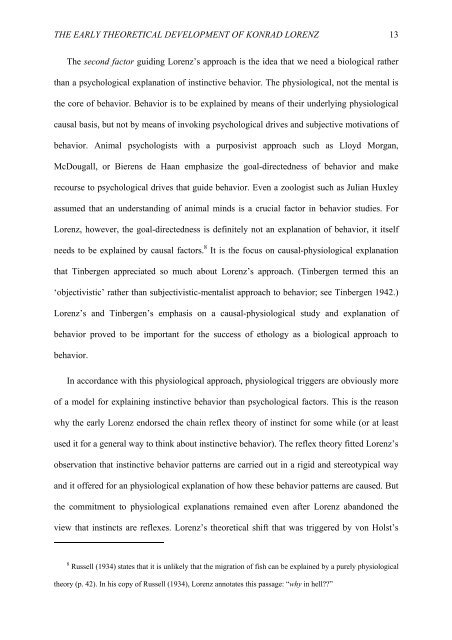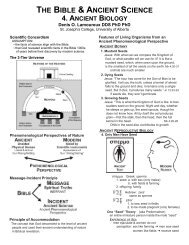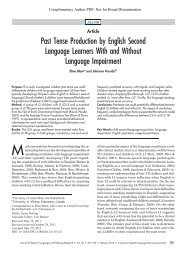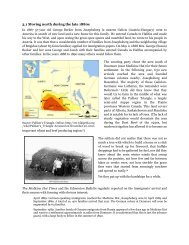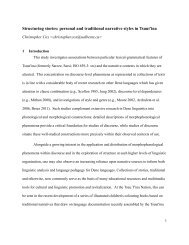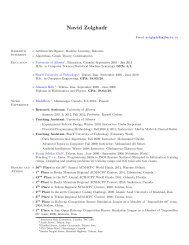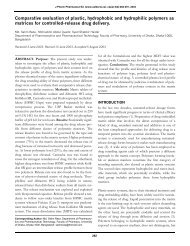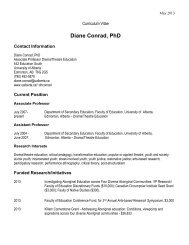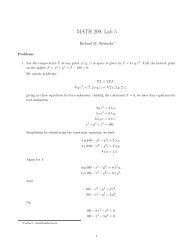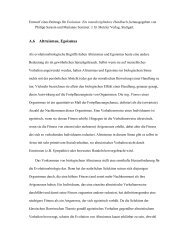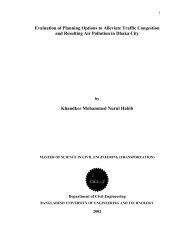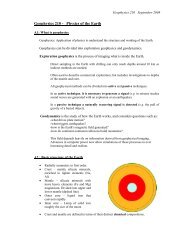The early theoretical development of Konrad Lorenz - University of ...
The early theoretical development of Konrad Lorenz - University of ...
The early theoretical development of Konrad Lorenz - University of ...
Create successful ePaper yourself
Turn your PDF publications into a flip-book with our unique Google optimized e-Paper software.
THE EARLY THEORETICAL DEVELOPMENT OF KONRAD LORENZ 13<br />
<strong>The</strong> second factor guiding <strong>Lorenz</strong>’s approach is the idea that we need a biological rather<br />
than a psychological explanation <strong>of</strong> instinctive behavior. <strong>The</strong> physiological, not the mental is<br />
the core <strong>of</strong> behavior. Behavior is to be explained by means <strong>of</strong> their underlying physiological<br />
causal basis, but not by means <strong>of</strong> invoking psychological drives and subjective motivations <strong>of</strong><br />
behavior. Animal psychologists with a purposivist approach such as Lloyd Morgan,<br />
McDougall, or Bierens de Haan emphasize the goal-directedness <strong>of</strong> behavior and make<br />
recourse to psychological drives that guide behavior. Even a zoologist such as Julian Huxley<br />
assumed that an understanding <strong>of</strong> animal minds is a crucial factor in behavior studies. For<br />
<strong>Lorenz</strong>, however, the goal-directedness is definitely not an explanation <strong>of</strong> behavior, it itself<br />
needs to be explained by causal factors. 8 It is the focus on causal-physiological explanation<br />
that Tinbergen appreciated so much about <strong>Lorenz</strong>’s approach. (Tinbergen termed this an<br />
‘objectivistic’ rather than subjectivistic-mentalist approach to behavior; see Tinbergen 1942.)<br />
<strong>Lorenz</strong>’s and Tinbergen’s emphasis on a causal-physiological study and explanation <strong>of</strong><br />
behavior proved to be important for the success <strong>of</strong> ethology as a biological approach to<br />
behavior.<br />
In accordance with this physiological approach, physiological triggers are obviously more<br />
<strong>of</strong> a model for explaining instinctive behavior than psychological factors. This is the reason<br />
why the <strong>early</strong> <strong>Lorenz</strong> endorsed the chain reflex theory <strong>of</strong> instinct for some while (or at least<br />
used it for a general way to think about instinctive behavior). <strong>The</strong> reflex theory fitted <strong>Lorenz</strong>’s<br />
observation that instinctive behavior patterns are carried out in a rigid and stereotypical way<br />
and it <strong>of</strong>fered for an physiological explanation <strong>of</strong> how these behavior patterns are caused. But<br />
the commitment to physiological explanations remained even after <strong>Lorenz</strong> abandoned the<br />
view that instincts are reflexes. <strong>Lorenz</strong>’s <strong>theoretical</strong> shift that was triggered by von Holst’s<br />
8 Russell (1934) states that it is unlikely that the migration <strong>of</strong> fish can be explained by a purely physiological<br />
theory (p. 42). In his copy <strong>of</strong> Russell (1934), <strong>Lorenz</strong> annotates this passage: “why in hell??”


